Innovations in Pharmaceutical Industry: A Look into the Future of Medicine
The pharmaceutical industry is at the forefront of transformative innovations that are reshaping the landscape
of medicine. As science and technology advance, new possibilities emerge, promising breakthroughs in drug
discovery, development, and patient care on this website.
Revolutionizing Drug Discovery
Traditionally, drug discovery has been a time-consuming and expensive process. However, recent innovations are
expediting this journey, bringing novel medications to patients more swiftly than ever before. High-throughput
screening, computational models, and artificial intelligence are playing pivotal roles in identifying
potential drug candidates with greater accuracy and efficiency.
Personalized Medicine Approaches
The era of one-size-fits-all medicine is evolving into a more personalized approach. Advances in genomics and
molecular biology enable researchers to understand individual variations in drug responses. Tailoring
treatments to a patient’s genetic makeup enhances efficacy and minimizes adverse effects, marking a
significant leap forward in patient-centered care.
Biopharmaceuticals and Gene Therapies
Biopharmaceuticals, including monoclonal antibodies and therapeutic proteins, are revolutionizing the
treatment landscape. Additionally, gene therapies are offering potential cures for previously incurable
genetic disorders. These innovations hold promise for addressing diseases at their root cause, providing
long-term solutions for patients.
Advanced Drug Delivery Systems
Innovations in drug delivery systems are enhancing the precision and effectiveness of treatments. From
nanoparticle-based delivery to targeted therapies, these advancements aim to improve drug distribution,
minimize side effects, and enhance overall therapeutic outcomes.
Digital Transformation in Clinical Trials
The digital revolution is not only impacting drug development but also transforming the way clinical trials are
conducted. Remote monitoring, real-time data analysis, and digital platforms streamline the trial process,
making it more efficient, cost-effective, and accessible to diverse patient populations.
Environmental Sustainability in Pharma
As the pharmaceutical industry progresses, there is a growing emphasis on sustainability. Companies are
incorporating eco-friendly practices in manufacturing, packaging, and disposal of medications to minimize
environmental impact. Sustainable initiatives are becoming integral to the industry’s commitment to global
well-being.
In conclusion, the innovations in the pharmaceutical industry are not only changing the way medicines are
discovered and developed but also revolutionizing the entire healthcare ecosystem. The future holds exciting
possibilities for more targeted, effective, and sustainable approaches to medicine, promising better health
outcomes for individuals around the world.
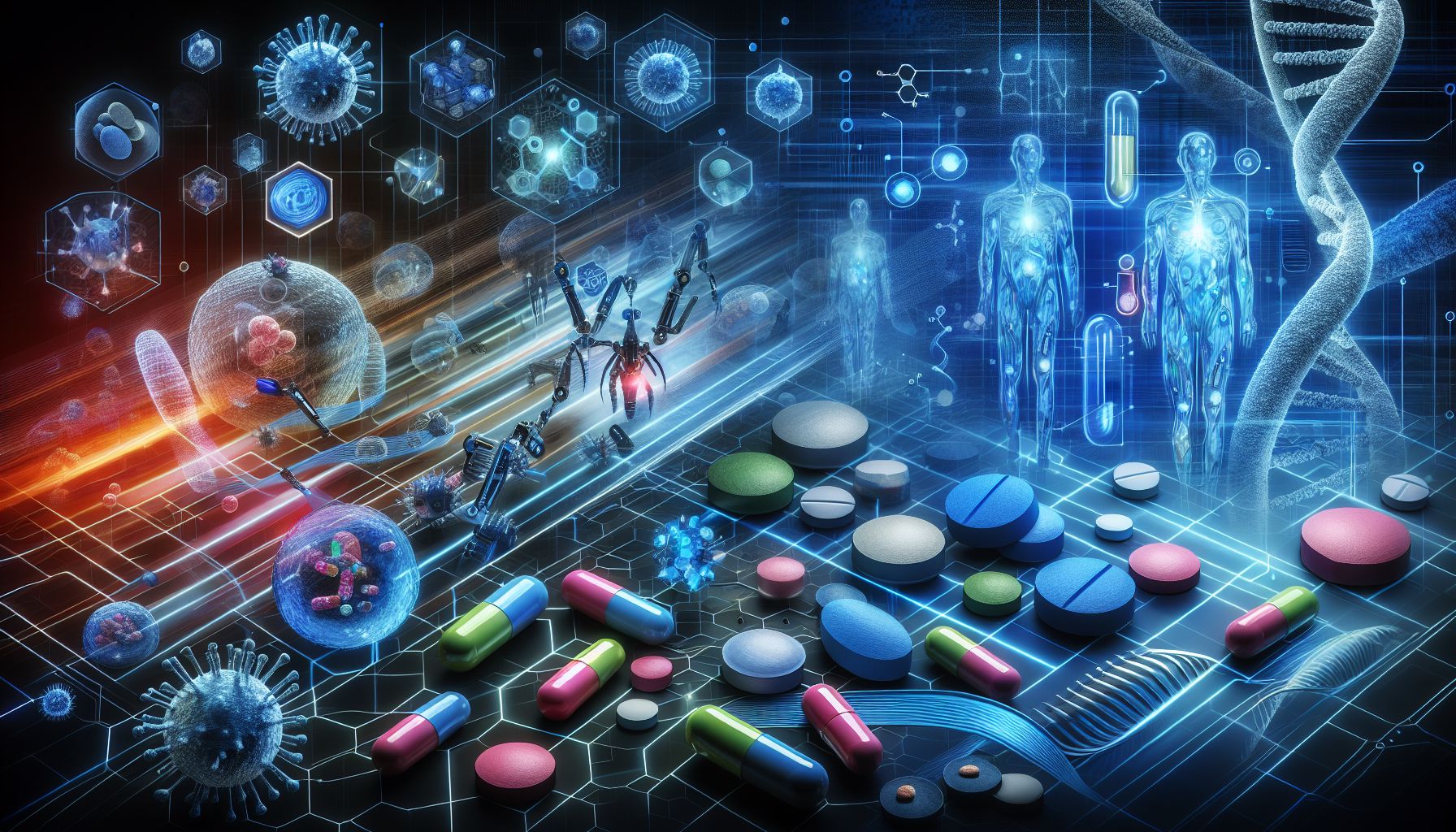
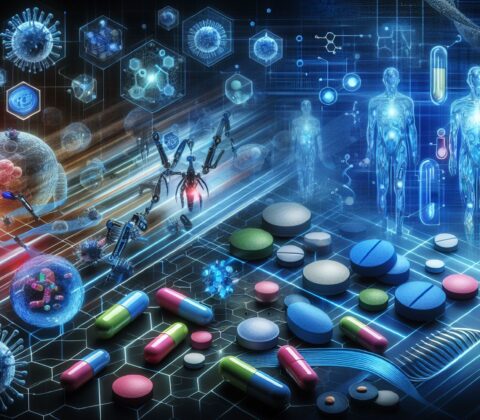
The Intersection of Technology and Pharmaceutical Products
In recent years, the intersection of technology and pharmaceutical products has revolutionized the healthcare industry. From the development of cutting-edge medications to the creation of innovative drug delivery systems, technology has played a crucial role in improving patient outcomes and streamlining the drug development process.
One of the most significant advancements in pharmaceutical technology is the use of artificial intelligence (AI) and machine learning in drug discovery. These technologies can analyze vast amounts of data to identify potential drug candidates faster and more accurately than traditional methods. This has led to the development of new medications for a wide range of diseases, including cancer, Alzheimer’s, and rare genetic disorders.
In addition to drug discovery, technology has also enhanced the manufacturing and quality control processes for pharmaceutical products. Automation and robotics have improved efficiency and reduced the risk of human error in drug production, ensuring that medications are produced safely and consistently. Quality control systems powered by artificial intelligence can also detect defects in drugs more effectively than manual inspection, leading to higher-quality products reaching patients.
Furthermore, technology has transformed the way pharmaceutical products are delivered to patients. Smart drug delivery systems, such as electronic pill bottles and wearable devices, can track medication adherence and provide real-time data to healthcare providers. These systems help ensure that patients take their medications as prescribed, ultimately leading to better treatment outcomes.
Moreover, digital health solutions, such as telemedicine platforms and health tracking apps, have made healthcare more accessible and convenient for patients. These technologies allow individuals to consult with healthcare providers remotely, monitor their health conditions, and receive personalized treatment recommendations. By integrating technology into pharmaceutical products, companies can provide patients with tailored treatment regimens and improve patient engagement and adherence.
In conclusion, the integration of technology into pharmaceutical products has had a profound impact on the healthcare industry. From accelerating drug discovery to enhancing drug manufacturing and delivery, technology has improved the efficacy, safety, and accessibility of medications for patients worldwide. As technology continues to advance, we can expect further innovations that will transform the way we develop, produce, and use pharmaceutical products.
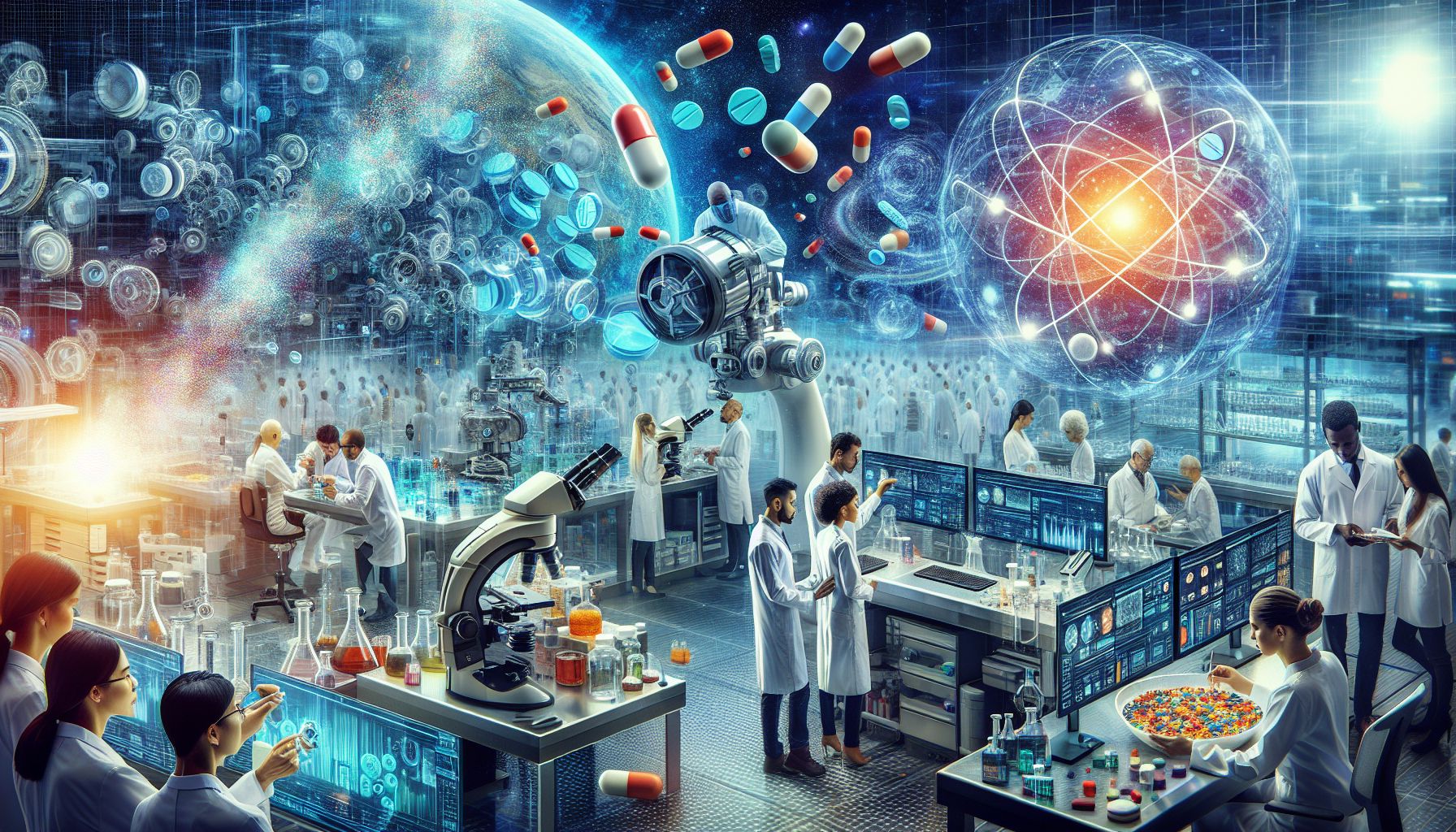
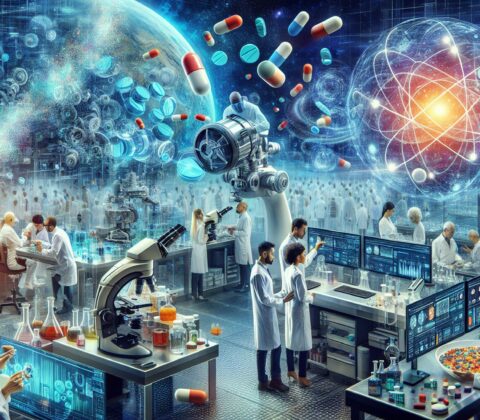
The Intersection of Technology and Pharmaceutical Products
In today’s fast-paced world, technology plays a crucial role in almost every industry, including the pharmaceutical sector. The integration of technology has revolutionized the way pharmaceutical products are developed, tested, and distributed. This has not only improved efficiency but also led to the creation of more effective and innovative medications.
One of the key ways in which technology has influenced the pharmaceutical industry is through the use of artificial intelligence and machine learning. These technologies have enabled researchers to analyze vast amounts of data in a fraction of the time it would take a human. This has resulted in the faster identification of potential drug candidates and the speedier development of new medications.
Additionally, technology has allowed for more precise and personalized medicine. Through the use of genetic testing and biometric data, pharmaceutical companies can create medications that are tailored to an individual’s specific needs. This has led to more targeted treatments with fewer side effects, resulting in better patient outcomes.
Another way in which technology has impacted the pharmaceutical industry is through the use of virtual reality and augmented reality. These technologies have been utilized in drug development to simulate clinical trials and study the effects of medications on virtual patients. This has not only sped up the drug development process but has also improved safety by allowing researchers to identify potential risks before testing on humans.
Furthermore, technology has played a significant role in improving the distribution and accessibility of pharmaceutical products. The use of blockchain technology has enabled better tracking of medications throughout the supply chain, reducing the risk of counterfeit drugs entering the market. Additionally, telemedicine and mobile health apps have made it easier for patients to access medications and monitor their health remotely.
In conclusion, the integration of technology into the pharmaceutical industry has had a profound impact on the development, testing, and distribution of medications. From artificial intelligence and machine learning to virtual reality and augmented reality, technology has enabled researchers to create more effective and personalized treatments. As technology continues to advance, we can expect to see even more innovative and life-changing pharmaceutical products in the future.
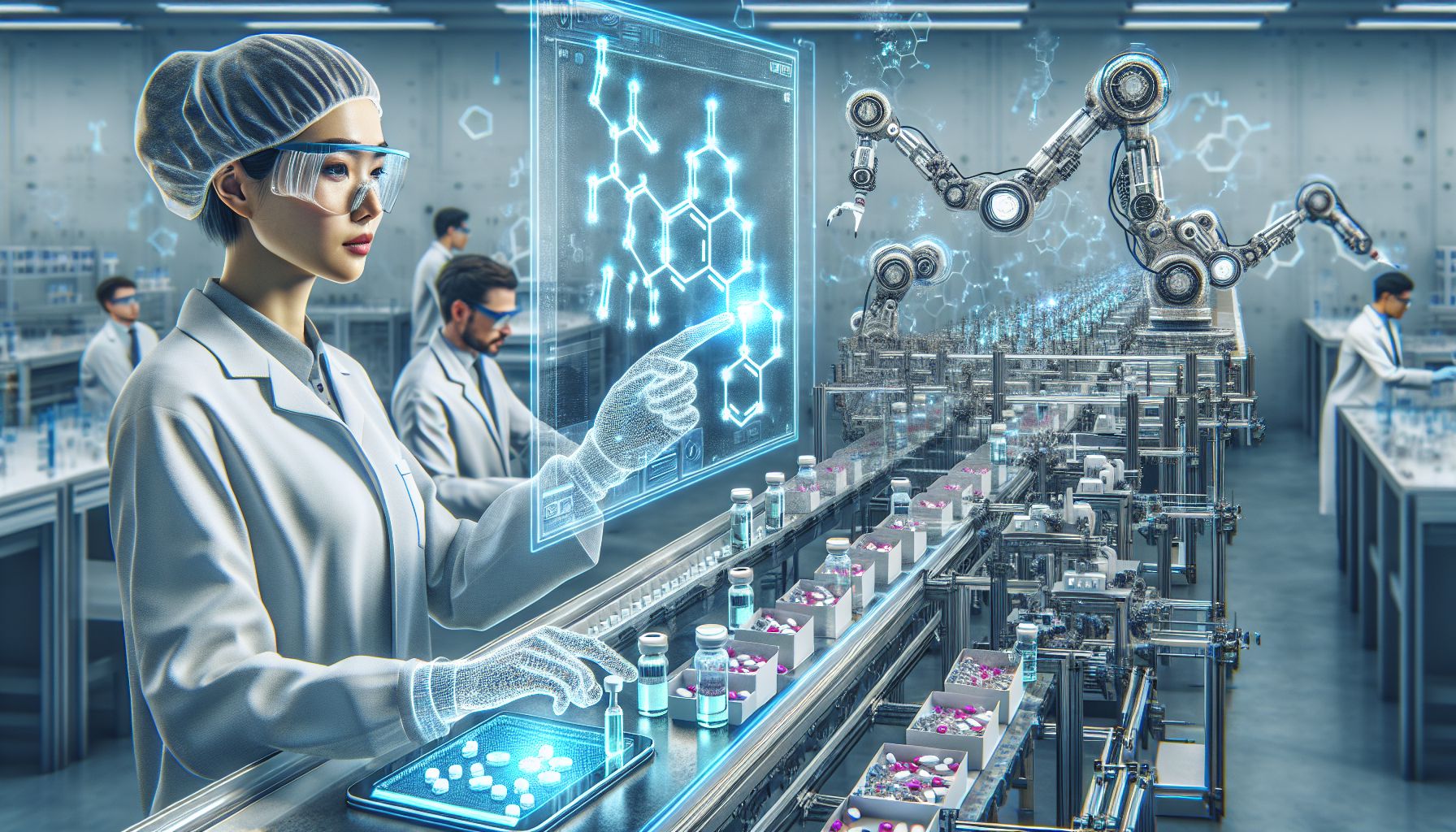
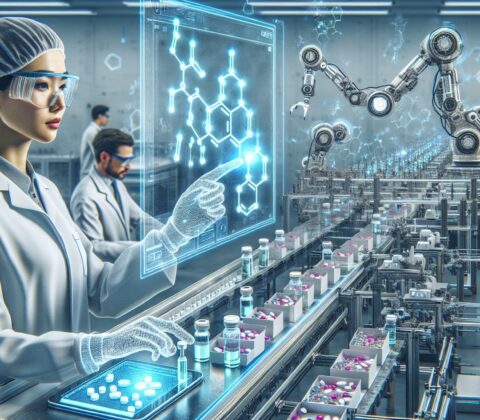
The Intersection of Technology and Pharmaceutical Products
In recent years, advancements in technology have revolutionized the pharmaceutical industry, leading to the development of innovative products that have the potential to improve patient outcomes and healthcare delivery. From digital therapeutics to personalized medicine, technology has paved the way for new treatment options and enhanced drug efficacy.
One key area where technology has made a significant impact is in the field of drug discovery. Through the use of artificial intelligence and machine learning algorithms, researchers are able to expedite the process of identifying potential drug candidates and predicting their efficacy. This has led to the development of new drugs for a variety of diseases, ranging from cancer to rare genetic disorders. These technologies have also enabled pharmaceutical companies to design drugs that are more targeted and personalized, reducing the risk of adverse effects and improving patient outcomes.
Another area where technology has played a crucial role is in the monitoring and management of patient health. Digital therapeutics, such as mobile apps and wearable devices, allow patients to track their symptoms, medication adherence, and overall health in real-time. This data can be shared with healthcare providers to ensure that patients are receiving the appropriate care and treatment. Additionally, some pharmaceutical products now come equipped with sensors and smart features that enable remote monitoring and automatic dosage adjustments, further enhancing patient care and compliance.
Moreover, technology has also transformed the way pharmaceutical products are manufactured and distributed. With the use of automation and robotics, drug production has become more efficient and cost-effective, leading to a decrease in production times and an increase in product quality. Additionally, advancements in supply chain management and logistics have enabled pharmaceutical companies to streamline their distribution processes, ensuring that medications reach patients in a timely manner.
In conclusion, the intersection of technology and pharmaceutical products has led to groundbreaking innovations that have the potential to revolutionize healthcare as we know it. From drug discovery to patient care and distribution, technology has played a crucial role in advancing the field of pharmaceuticals. As technology continues to evolve, we can expect to see even more exciting developments in the years to come, ultimately leading to improved patient outcomes and a more efficient healthcare system.
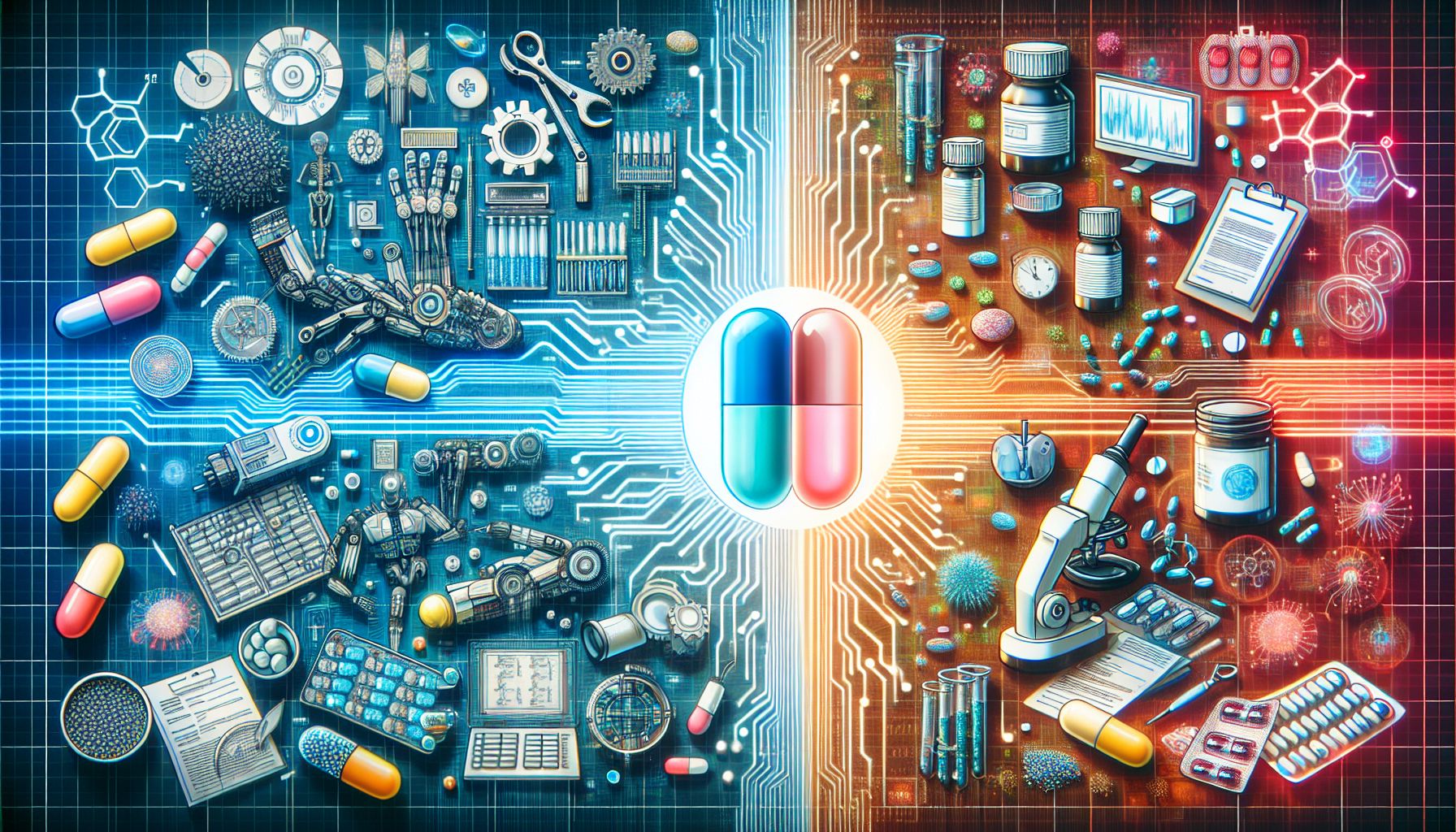
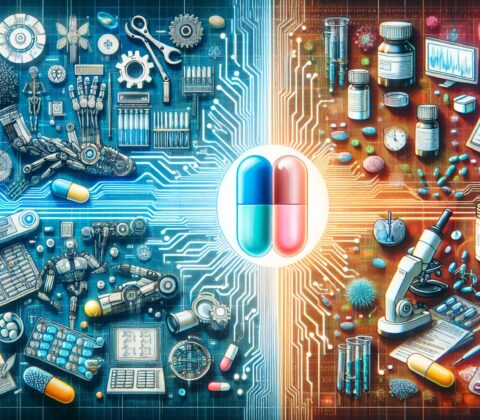
The Intersection of Technology and Pharmaceutical Products
In recent years, the intersection of technology and pharmaceutical products has revolutionized the way we approach healthcare and medicine. From personalized medicine to advanced drug discovery, technology has significantly impacted the pharmaceutical industry, leading to more effective treatments and improved patient outcomes.
One of the most significant advancements in this field is the use of artificial intelligence (AI) and machine learning algorithms in drug discovery. By analyzing vast amounts of data, these technologies can identify potential drug candidates more efficiently and accurately than traditional methods. This has led to the development of new medications for a wide range of diseases, including cancer, Alzheimer’s, and rare genetic disorders.
Additionally, technology has enabled the creation of personalized medicine, where treatments are tailored to an individual’s specific genetic makeup. This not only improves the efficacy of the medication but also reduces the risk of adverse reactions. Through genetic testing and data analysis, healthcare providers can now prescribe the most suitable treatment for each patient, leading to better outcomes and a higher quality of life.
Furthermore, advancements in wearable technology and remote monitoring devices have allowed patients to take a more active role in managing their health. From smart insulin pumps for diabetics to fitness trackers that monitor heart rate and sleep patterns, these devices provide valuable data that can help healthcare providers make more informed decisions about treatment plans. This real-time information enables early intervention and better overall health management.
In the realm of pharmaceutical manufacturing, technology has also played a crucial role in improving efficiency and drug safety. Automated systems and robotics have streamlined the production process, reducing human error and ensuring consistent quality control. Moreover, digital technologies such as blockchain are being used to track the supply chain of medications, ensuring transparency and preventing counterfeit drugs from entering the market.
Despite these advancements, the integration of technology into the pharmaceutical industry also poses challenges, such as data privacy concerns and regulatory hurdles. As technology continues to evolve, policymakers and healthcare professionals must work together to establish guidelines that protect patient information while promoting innovation and efficiency.
In conclusion, the convergence of technology and pharmaceutical products has paved the way for groundbreaking advancements in healthcare. From AI-driven drug discovery to personalized medicine and remote monitoring devices, these innovations are transforming the way we approach treatment and disease management. By harnessing the power of technology, we can improve patient outcomes, reduce healthcare costs, and ultimately enhance the quality of care for all.
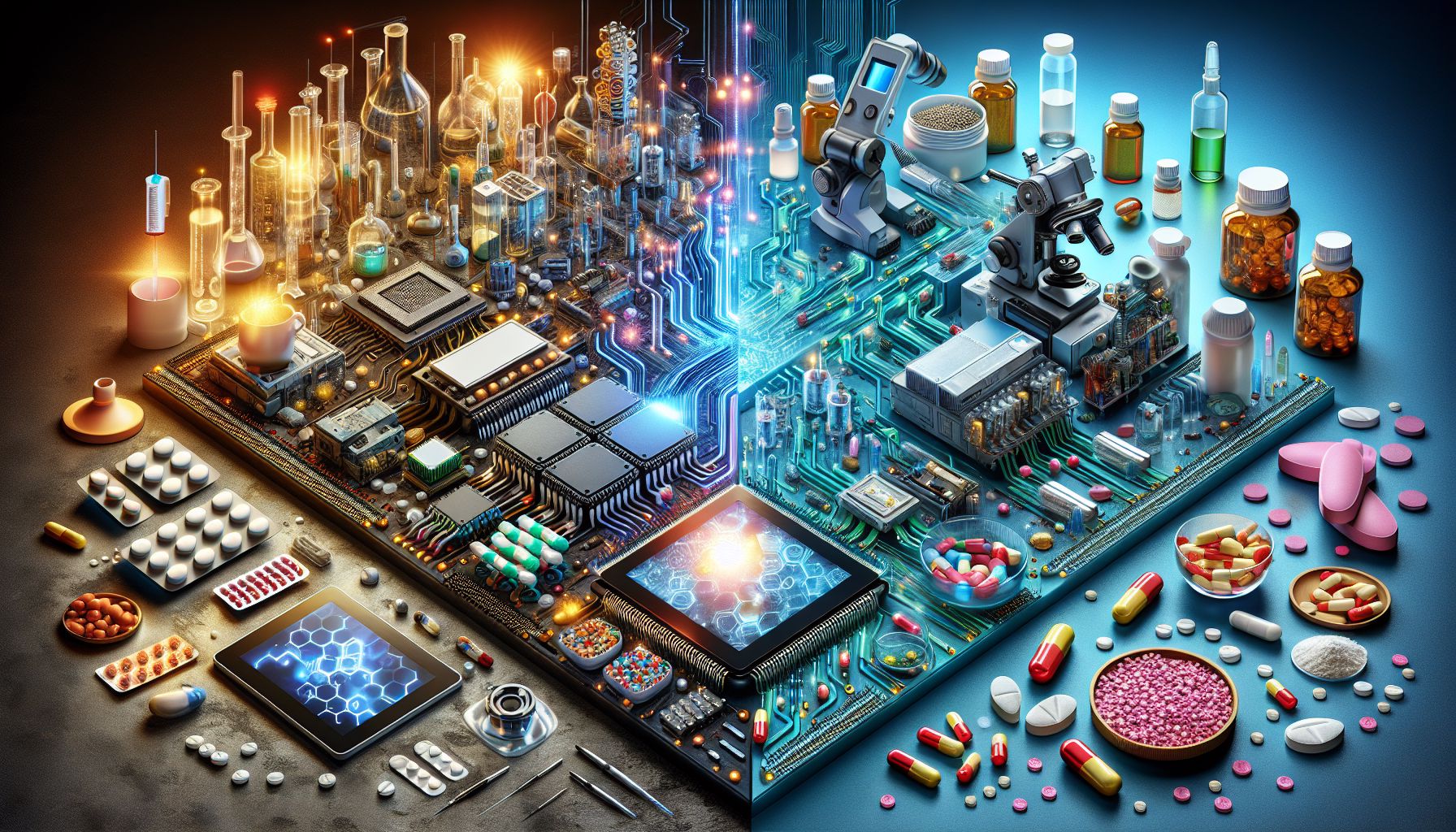
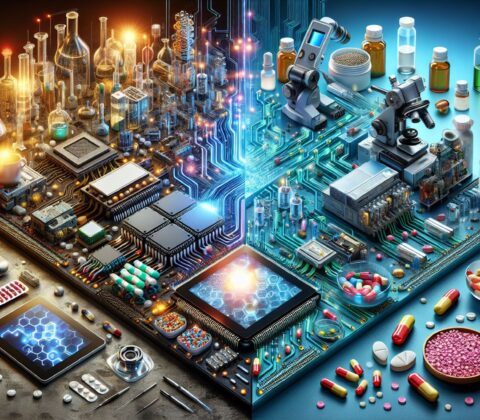
The Intersection of Technology and Pharmaceutical Products
Technology has revolutionized nearly every aspect of our society, and the pharmaceutical industry is no exception. With the help of advanced technology, pharmaceutical companies are able to develop, test, and produce drugs more efficiently and effectively than ever before. From research and development to distribution and patient care, technology plays a crucial role at every step of the pharmaceutical supply chain.
One of the most significant ways that technology is shaping the pharmaceutical industry is through the use of data analytics and artificial intelligence. By analyzing massive amounts of data, researchers can identify potential drug candidates more quickly and accurately than ever before. Artificial intelligence algorithms can also help predict how drugs will interact with the human body, allowing for safer and more effective treatments.
Another key area where technology is making a difference is in the manufacturing process. Automation and robotics are increasingly being used to produce pharmaceutical products, leading to higher quality and consistency in the final products. These technologies also allow for faster production times, which means that drugs can reach patients in need more quickly.
In addition to research and manufacturing, technology is also impacting the way that pharmaceutical products are marketed and distributed. Digital marketing techniques are now being used to reach healthcare professionals and patients, providing them with important information about new drugs and treatment options. Electronic health records and telemedicine services are also changing the way that patients access and receive pharmaceutical products, making it easier for them to stay healthy and properly manage their medications.
As technology continues to advance, the possibilities for improving pharmaceutical products and healthcare outcomes are endless. From personalized medicine based on genetic testing to the development of new treatments for previously untreatable diseases, technology is opening up new frontiers in the pharmaceutical industry.
However, it’s important to remember that with great power comes great responsibility. As pharmaceutical companies leverage technology to create new products and treatments, they must also ensure that they are prioritizing patient safety and data privacy. The regulation of technology in the pharmaceutical industry will be crucial to ensuring that these innovations are used ethically and responsibly.
In conclusion, the intersection of technology and pharmaceutical products is a dynamic and rapidly evolving field that has the potential to revolutionize healthcare as we know it. By harnessing the power of data analytics, artificial intelligence, and automation, pharmaceutical companies can create safer, more effective drugs that improve the lives of millions of people around the world. As long as this technology is used responsibly and ethically, the future of pharmaceuticals looks brighter than ever before.
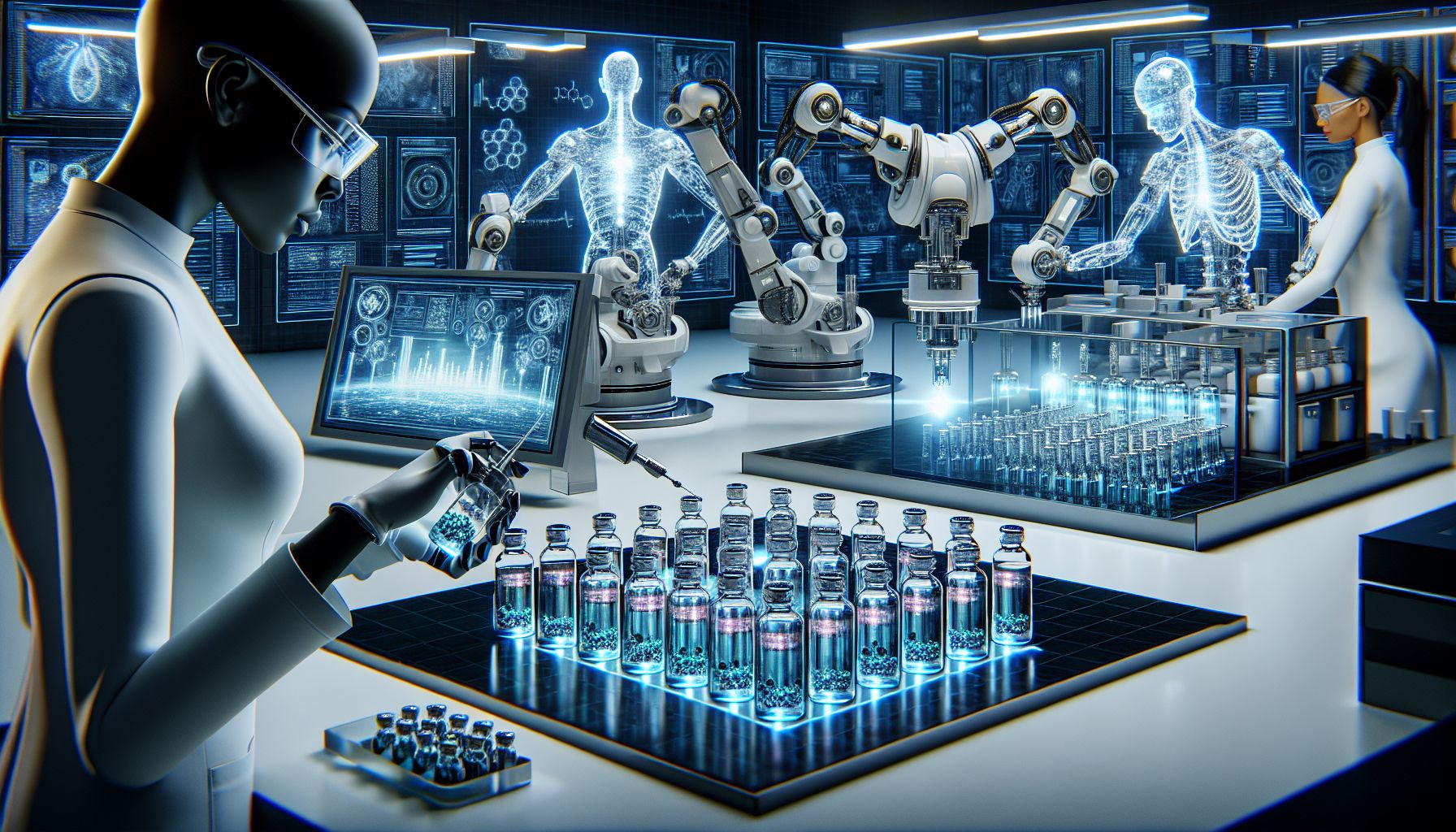
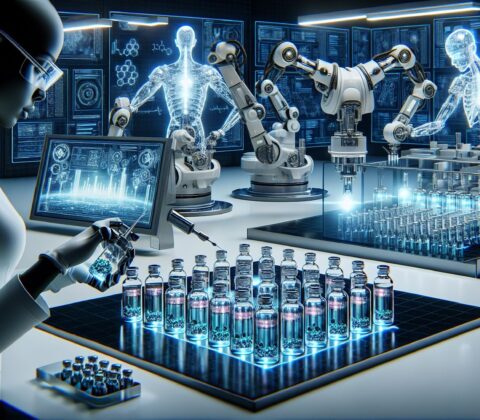
The Intersection of Technology and Pharmaceutical Products
In today’s rapidly evolving world, technology has become an integral part of virtually every industry. The pharmaceutical sector is no exception, as advancements in technology continue to revolutionize the way drugs are developed, tested, and distributed.
One of the most significant ways in which technology is impacting the pharmaceutical industry is through the use of artificial intelligence (AI) and machine learning. These tools enable researchers to sift through vast amounts of data and identify potential drug candidates more quickly and efficiently than ever before. By using AI algorithms to predict how molecules will behave in the body, scientists are able to streamline the drug discovery process and bring new treatments to market faster.
Another area where technology is making a big impact is in the realm of personalized medicine. Advances in genetic sequencing and data analytics have made it possible to tailor treatments to individual patients based on their unique genetic makeup. This level of precision not only improves patient outcomes but also reduces the likelihood of adverse reactions to medications.
Furthermore, technology is playing a crucial role in improving the safety and efficacy of pharmaceutical products. By utilizing data analytics and real-time monitoring, companies can track the performance of their drugs in real-world settings and identify any potential issues early on. This proactive approach helps to ensure that drugs are not only effective but also safe for patients to use.
In addition to drug development, technology is also transforming the way pharmaceutical products are distributed and administered. Telemedicine and digital health platforms are making it easier for patients to access the medications they need without having to visit a physical pharmacy. This not only improves convenience for patients but also helps to reduce the risk of medication errors.
While the integration of technology into the pharmaceutical industry brings about numerous benefits, it also presents its own set of challenges. Issues such as data privacy, cybersecurity, and regulatory compliance must be carefully navigated to ensure that patient information remains secure and that drugs meet the necessary quality standards.
In conclusion, the intersection of technology and pharmaceutical products is reshaping the way drugs are developed, tested, and distributed. From AI-driven drug discovery to personalized medicine and digital health platforms, technology is helping to improve the safety, efficacy, and accessibility of pharmaceutical products. As the industry continues to evolve, it is essential for companies to embrace technology and leverage its power to drive innovation and improve patient outcomes.
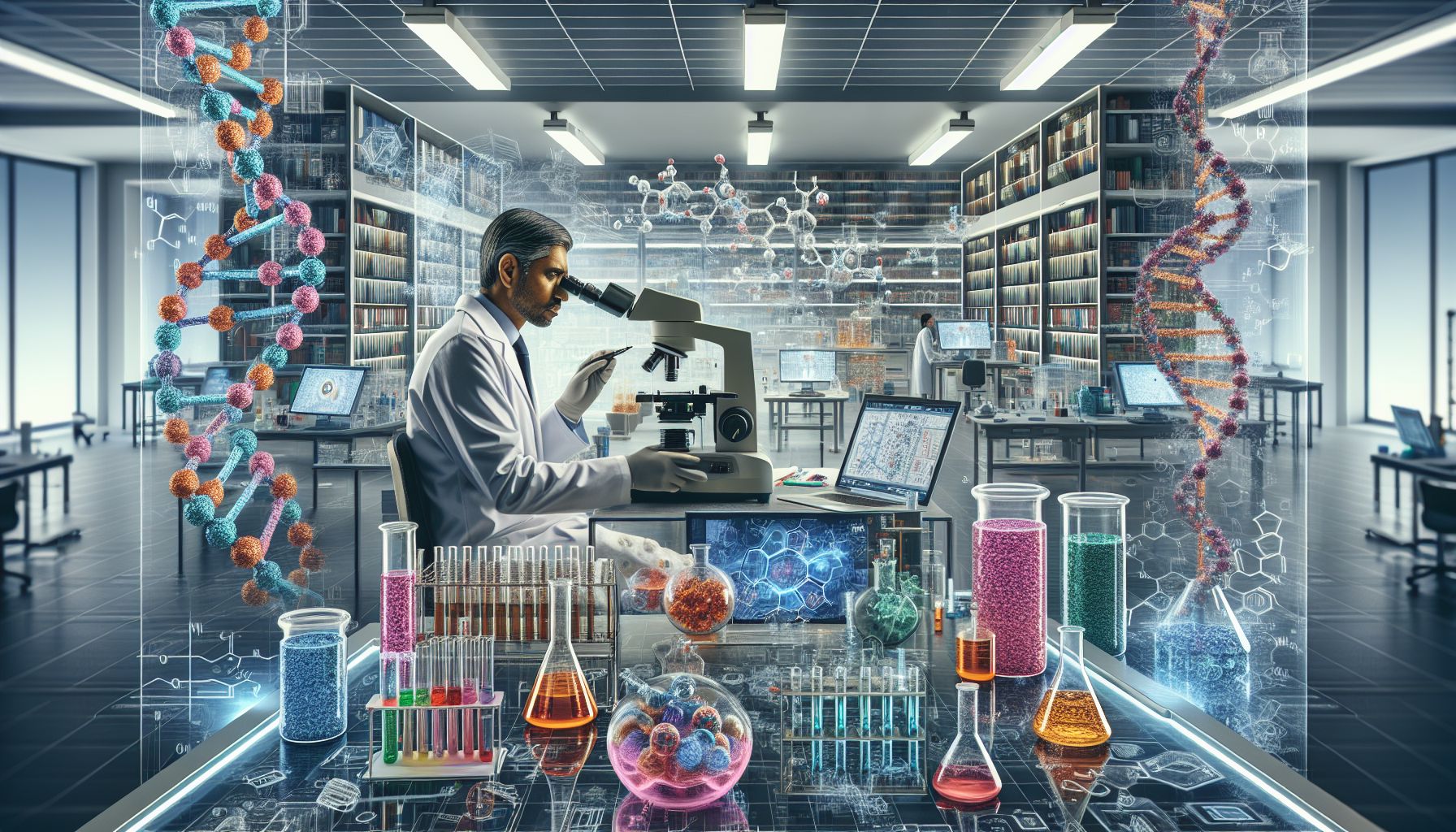
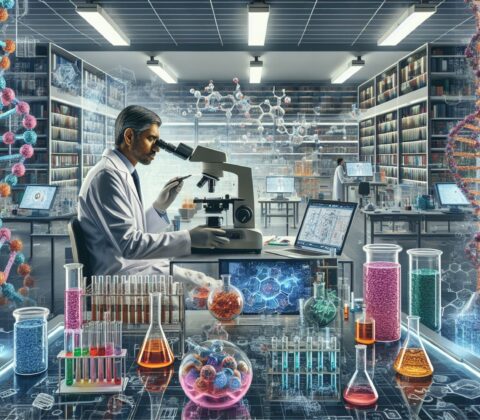
The Intersection of Technology and Pharmaceutical Products
The pharmaceutical industry has always been at the forefront of innovation and technological advancement. From the discovery of new drugs to the development of cutting-edge medical devices, technology plays a crucial role in the production and delivery of pharmaceutical products. In recent years, we have seen a significant growth in the use of technology to improve the efficiency, safety, and effectiveness of pharmaceutical products.
One of the most exciting developments in this area is the use of artificial intelligence and machine learning in drug discovery. By leveraging vast amounts of data, AI algorithms can identify potential drug candidates faster and more accurately than ever before. This has the potential to significantly speed up the drug development process and bring new therapies to market more quickly.
Another area where technology is making a big impact is in the manufacturing of pharmaceutical products. Advanced automation and robotics are being used to streamline the production process, leading to higher quality and more consistent products. This not only benefits the pharmaceutical companies by reducing costs and increasing efficiency but also ensures that patients receive the highest quality medications.
In addition to drug discovery and manufacturing, technology is also being used to improve the delivery of pharmaceutical products. For example, the development of smart drug delivery systems enables precise dosing and targeted delivery of medications, reducing side effects and improving patient outcomes. Wearable devices and mobile apps are also being used to monitor patient adherence to medication regimens and provide real-time feedback to healthcare providers.
Furthermore, the rise of telemedicine and digital health platforms has revolutionized how patients access pharmaceutical products and medical care. Online pharmacies and teleconsultation services allow patients to receive prescriptions and medication refills without ever leaving their homes, making healthcare more convenient and accessible.
Of course, with the integration of technology into pharmaceutical products comes the need for robust cybersecurity measures to protect sensitive patient and research data. As the industry continues to embrace digital innovation, it is crucial for companies to invest in cybersecurity infrastructure to safeguard against potential cyber threats.
In conclusion, the convergence of technology and pharmaceutical products is transforming the way we develop, manufacture, and deliver medications. From AI-driven drug discovery to automated manufacturing processes and digital health platforms, technology is revolutionizing the pharmaceutical industry and ultimately improving patient care. As we continue to embrace these advancements, we can expect to see even more innovative and effective treatments in the years to come.
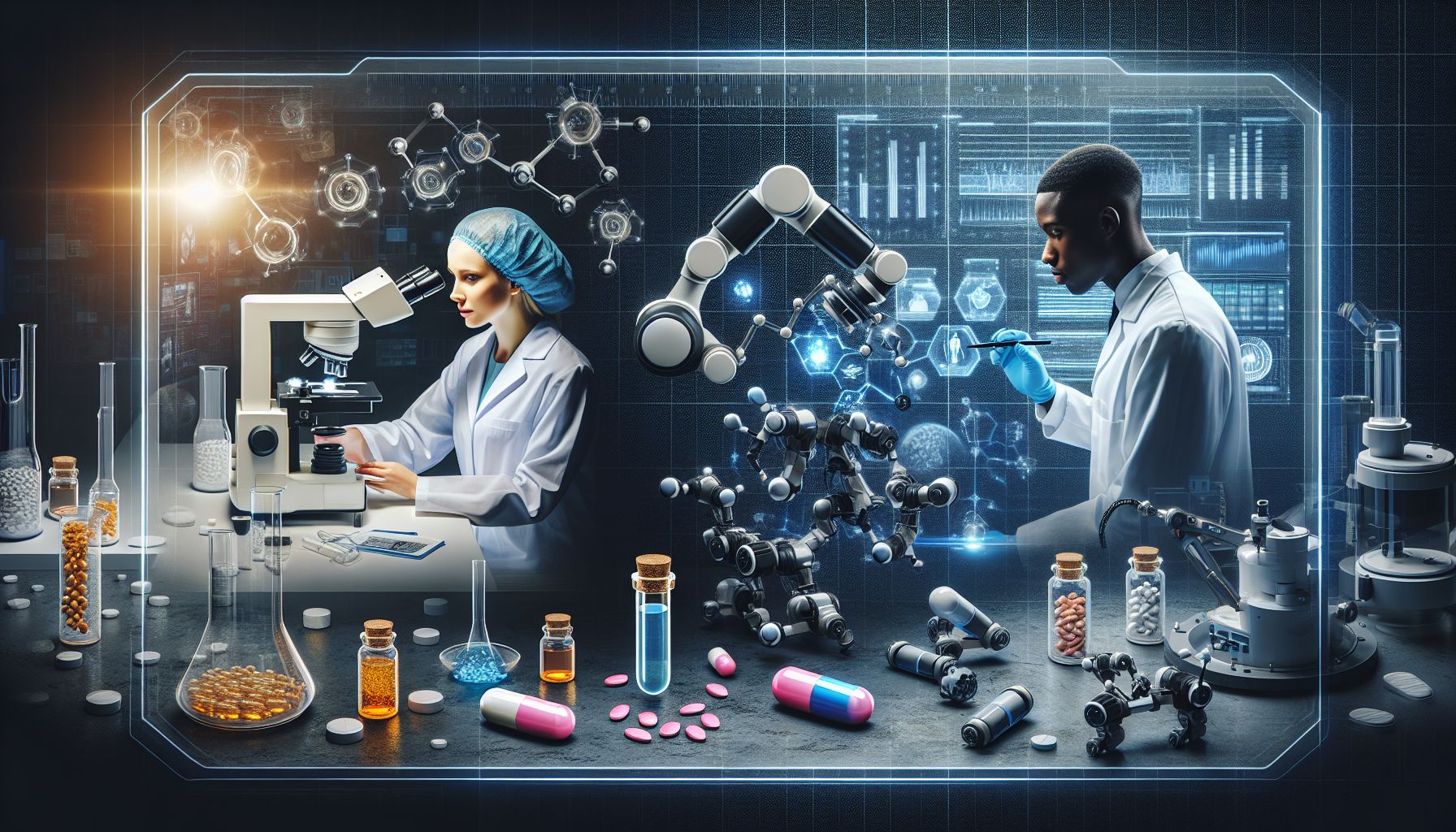
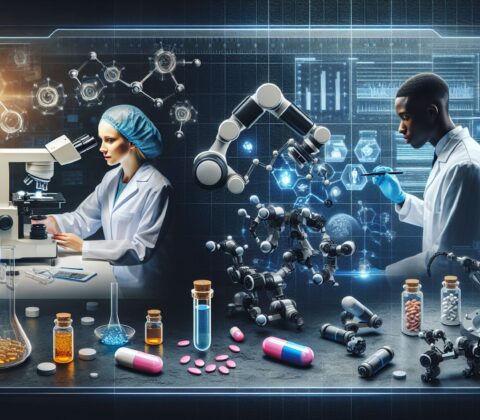
The Intersection of Technology and Pharmaceutical Products
Over the past few decades, technology has been revolutionizing the pharmaceutical industry in ways that were once thought impossible. From drug discovery and development to manufacturing and distribution, technology has played a crucial role in improving the efficiency and effectiveness of pharmaceutical products.
One of the most significant advancements in the pharmaceutical industry has been the use of artificial intelligence (AI) and machine learning algorithms for drug discovery. These technologies have the ability to analyze massive amounts of data and identify potential drug candidates much faster than traditional methods. This has greatly accelerated the drug development process, allowing pharmaceutical companies to bring new medications to market more quickly and cost-effectively.
In addition to drug discovery, technology has also improved the manufacturing and quality control processes of pharmaceutical products. Automation and robotics have been integrated into production lines, reducing the risk of human error and increasing the consistency and precision of drug manufacturing. Quality control measures have also been enhanced through the use of advanced sensors and data analytics, ensuring that pharmaceutical products meet the highest standards of safety and efficacy.
Furthermore, technology has transformed the way pharmaceutical products are distributed and monitored. The development of smart packaging and tracking devices has enabled pharmaceutical companies to monitor the storage and transportation of their products in real time, ensuring that medications are delivered safely and securely to patients. In addition, the use of digital health platforms and mobile applications has made it easier for patients to access information about their medications and manage their health conditions.
Despite the many benefits of technology in the pharmaceutical industry, there are also challenges that need to be addressed. Data privacy and security concerns, regulatory hurdles, and the need for specialized training and expertise are just a few of the obstacles that pharmaceutical companies face when adopting new technologies. However, with the right strategies and investments, these challenges can be overcome, allowing the industry to continue to innovate and improve the lives of patients around the world.
In conclusion, the intersection of technology and pharmaceutical products has opened up new possibilities for drug discovery, manufacturing, distribution, and monitoring. With continued advancements in AI, automation, and digital health solutions, pharmaceutical companies are well-positioned to overcome current challenges and drive further innovation in the years to come. By harnessing the power of technology, the pharmaceutical industry can deliver safer, more effective medications to patients and improve global healthcare outcomes.
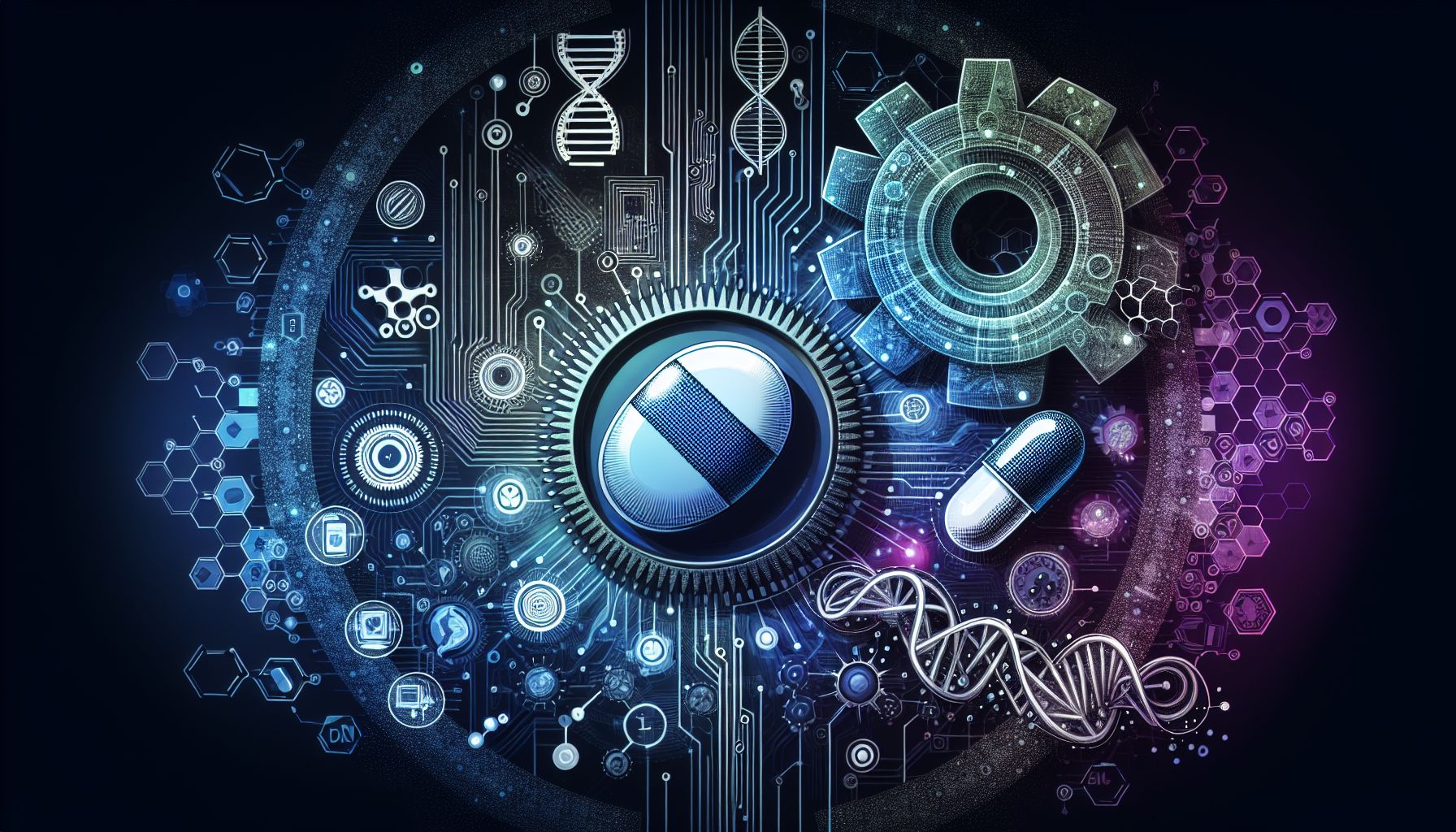
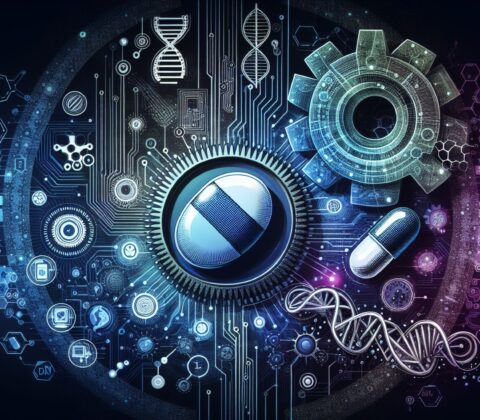
The Intersection of Technology and Pharmaceuticals: Advancements in Modern Medicine
In recent years, there has been a significant intersection between technology and pharmaceutical products, leading to advancements in modern medicine that have revolutionized the way we approach healthcare. From the development of new drugs to the utilization of artificial intelligence in drug discovery, the collaboration between these two industries has opened up a world of possibilities for improving patient outcomes and transforming the healthcare landscape.
One of the most notable advancements in the field of pharmaceuticals is the use of technology in drug development. With the help of computational modeling and virtual screening, researchers are able to identify potential drug candidates more efficiently and accurately than ever before. This has led to the discovery of novel treatments for a wide range of diseases, from cancer to rare genetic disorders, offering hope to patients who previously had limited treatment options.
Additionally, technology has played a crucial role in enhancing the efficiency of clinical trials and streamlining the drug approval process. Electronic health records, wearable devices, and remote monitoring tools have made it easier for researchers to collect and analyze data in real-time, allowing for faster and more reliable results. This not only accelerates the pace of drug development but also ensures that new medications are safe and effective for patients.
Moreover, the integration of artificial intelligence and machine learning in drug discovery has further revolutionized the pharmaceutical industry. These advanced technologies have the ability to analyze vast amounts of data, predict drug-target interactions, and optimize drug formulations, leading to the development of more personalized and precise treatments. By harnessing the power of AI, researchers are able to identify potential drug candidates with higher success rates and lower costs, ultimately improving the efficiency of the drug discovery process.
In conclusion, the collaboration between technology and pharmaceutical products has paved the way for groundbreaking innovations in modern medicine. From accelerating drug development to optimizing patient care, the integration of advanced technologies has transformed the healthcare industry in ways we never thought possible. As we continue to push the boundaries of innovation, we can expect to see even more exciting developments that will revolutionize the future of healthcare and improve the lives of patients worldwide.
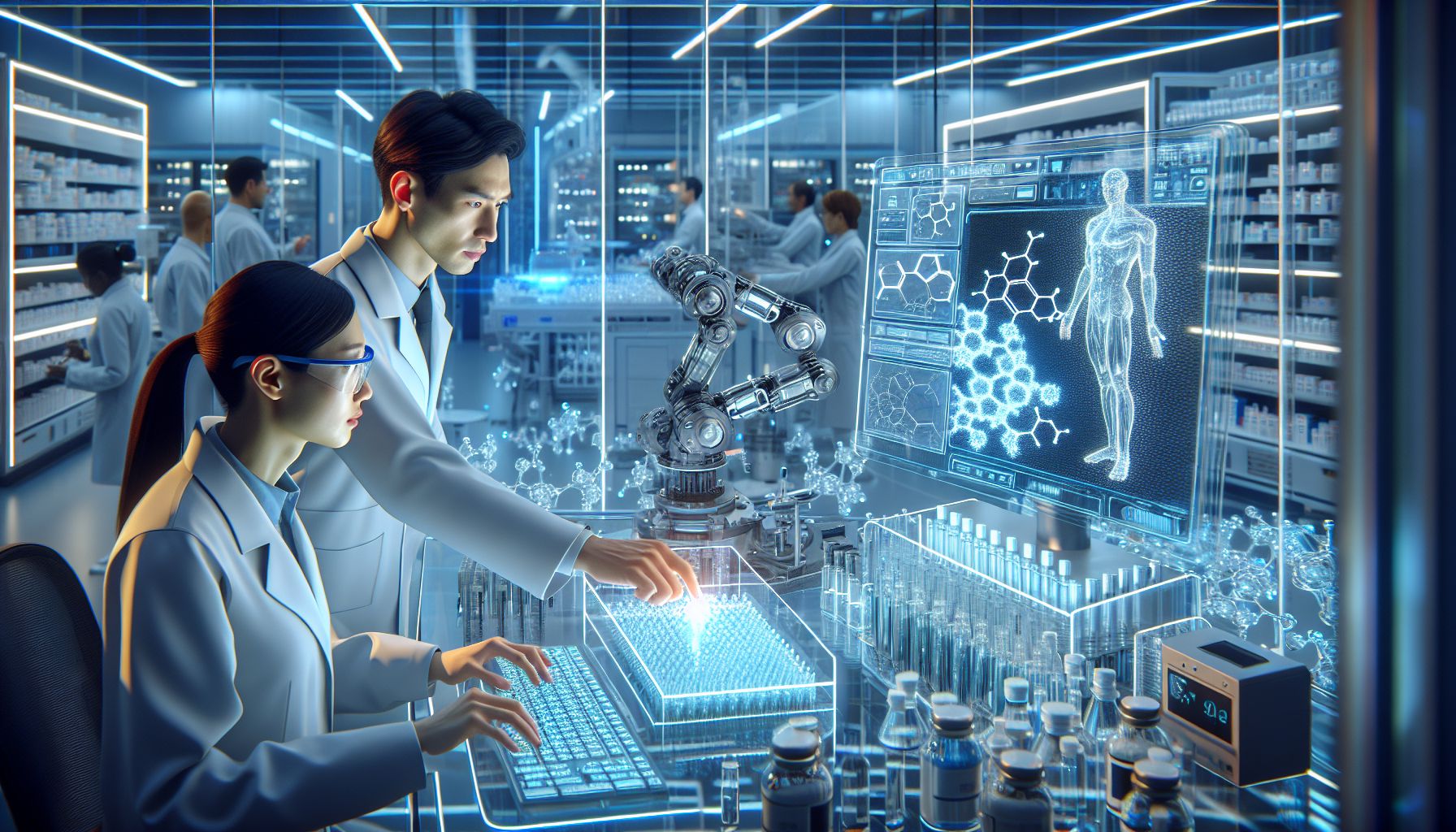
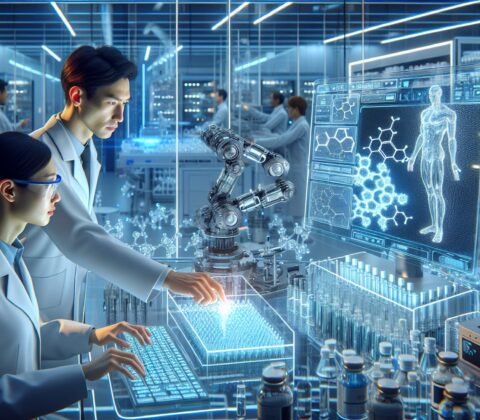
The Fusion of Technology and Pharmaceutical Products
In recent years, the pharmaceutical industry has seen a significant shift towards the integration of technology into the development and production of drugs. This fusion has led to numerous advancements in the field, revolutionizing the way medications are researched, tested, and administered.
One of the most notable ways in which technology has impacted pharmaceutical products is through the use of artificial intelligence (AI) and machine learning. These technologies have the ability to analyze massive amounts of data at speeds that far exceed human capabilities, allowing researchers to identify potential drug candidates more efficiently. AI can also be used to predict the efficacy and potential side effects of a drug, helping to streamline the drug development process.
Additionally, the use of technology has enabled the development of personalized medicine, where treatments are tailored to individual patients based on their unique genetic makeup. This approach has the potential to improve the effectiveness of medications and reduce the occurrence of adverse reactions.
Another area where technology is making a significant impact is in the delivery of pharmaceutical products. Innovations such as smart pills, implantable drug delivery devices, and wearable technology are changing the way medications are administered. These technologies can help patients adhere to their medication regimens and provide healthcare providers with real-time data on a patient’s health status.
Furthermore, technology has also transformed the way pharmaceutical companies interact with consumers. Digital health platforms, mobile apps, and telemedicine services are giving patients greater access to healthcare information and services. These tools can help individuals track their medications, monitor their health conditions, and communicate with their healthcare providers more effectively.
While the fusion of technology and pharmaceutical products has brought about numerous benefits, it also presents new challenges. Issues such as data security, regulatory compliance, and ethical considerations must be carefully addressed to ensure the safe and responsible use of technology in healthcare.
In conclusion, the integration of technology into the pharmaceutical industry has had a profound impact on the way medications are researched, developed, and delivered. From AI-powered drug discovery to personalized medicine and digital health platforms, technology is reshaping the future of healthcare. As these advancements continue to evolve, it is essential for pharmaceutical companies, healthcare providers, and regulators to work together to harness the full potential of technology in improving patient outcomes and advancing the field of medicine.